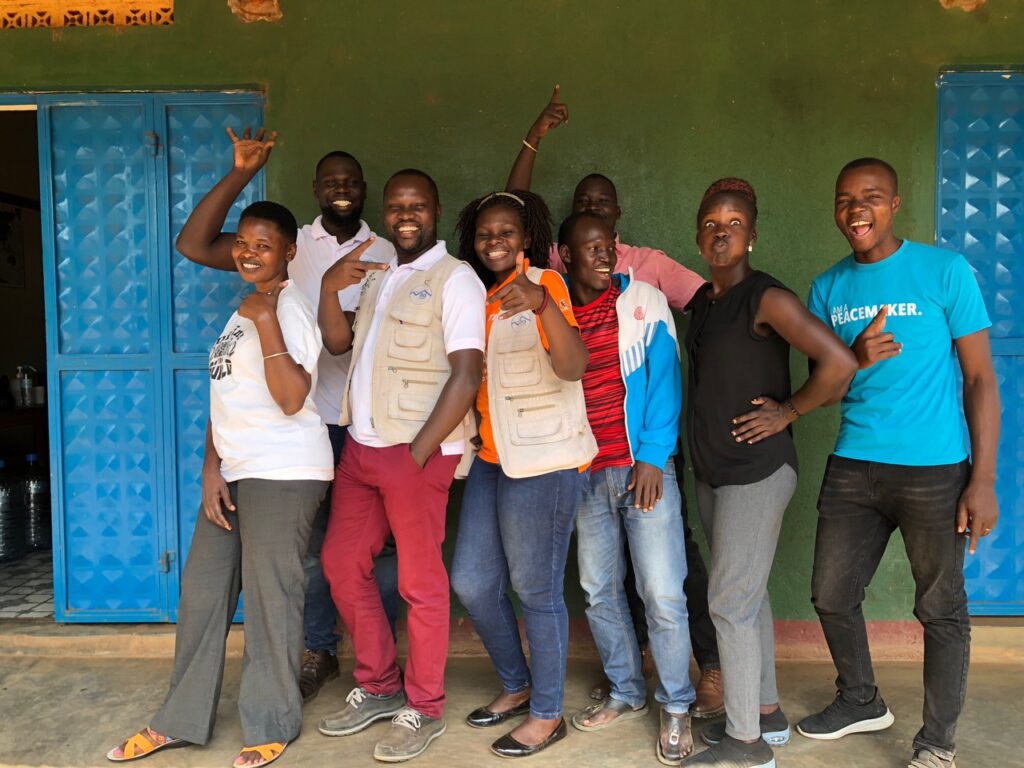written by Helen in mid Feb.
I’ve recently spent a few very memorable days with the team from I Live Again Uganda (ILA), up at their most northerly programme in the Lamwo refugee settlement. ILA have a wonderful team of trauma counsellors who go up to the settlement every week, leaving home on the Monday morning and returning by the Friday, so that they can spend time supporting the refugees, all of whom have fled from the war in South Sudan. The support that they give centres around their Empower programme, and includes group counselling, one on one counselling, and other psychosocial support.

They work with the adults, with the youth and with the children – no one is left out, and they spend a week at a time with an identified community block, ensuring that the teaching and support can go deep enough to have long lasting benefits.
Whilst I was there, I interviewed 6 South Sudanese refugee women, all of whom have engaged with the programme, as part of my PhD research. I was interested to find out more about how women who have experienced war and conflict, and fled their country as a result, understand or move towards achieving some sense of wellbeing.
The stories that I heard, the reflections that they had, the insights and knowledge that they were willing to share with me – all of this left me with a profound sense of deep privilege, that they were willing to trust me enough to engage in the interviews, to open up, and to talk about experiences and memories that at times were clearly very tough.
The six women were all of different ages, with different family situations, different experiences of the South Sudan war, and to a certain extent different reasons for fleeing from it. They are from different tribes and I wish I could say that they have had different educational experiences. Unfortunately I can’t – none of them have been to school, either because of the war, or in most cases, just because they are girls, and it was deemed unnecessary for a girl to get an education.
But as I sat with each of them in turn, on a quiet rocky hillock away from the grass and mud huts that they live in, I noted time and again just how much their resilience shone through. They quietly stated what had happened in the past, openly and with as much detail as they felt comfortable to share, but without animosity or a desire for revenge.
Each of them spoke in turn about the challenges that they face in the camp – access to food and other basics, trying to ensure that their children can access education and so have a better start in life than they personally had, trying to create opportunities to earn some small monies to be able to get clothes and other extras. One lady spoke of her disabled daughter. Another had lost both parents and was bringing up her young siblings. Some spoke of marriage issues. And underlying it all were a host of cultural expectations and challenges that they are having to navigate.
But there was no animosity, no anger – just an acceptance of what had happened, and a desire to move on, to put the past behind them, to forgive those who had hurt them so that the poison of unforgiveness can’t take hold, to focus on the future.
Much of this way of thinking, they all acknowledged has come about as a result of the trauma counselling and Empower programme that ILA carries out. Through a series of talks and interactive sessions, the team take the participants through the whole programme, and as the individuals put their learning into practice, so the changes start to be seen.
The ladies told me of some of the benefits that they have experienced as a result of the programme: sleeping better, head feels less crowded, less stomach pains, more energy for their children, better community spirit, less inter-tribal tensions, more hope for the future.
It was a real privilege to sit with these ladies and hear their stories. The next stage of my research is to write the interviews up and analyse them. The ultimate aim is to produce a piece of quality research that does justice to these women who are at the heart of it, and which draws attention to the incredibly strong, resilient, wise and thoughtful individuals that they are. Their voices rarely get heard. My aim is to change that, and this past week I’ve taken a decent step towards achieving it.








